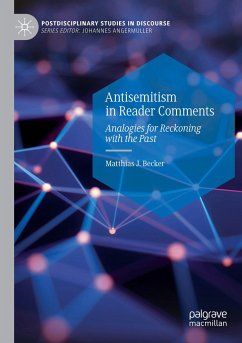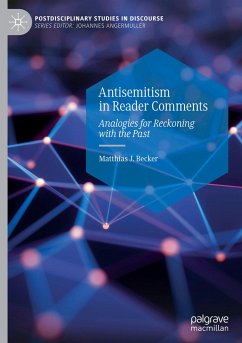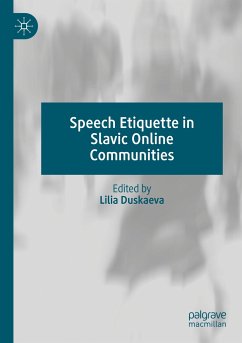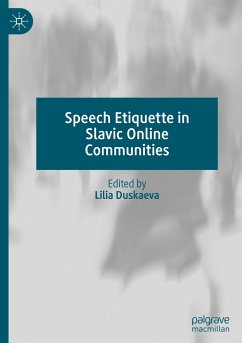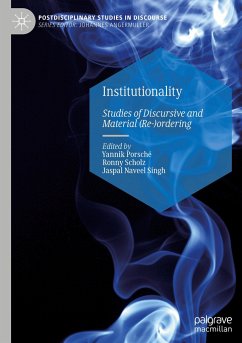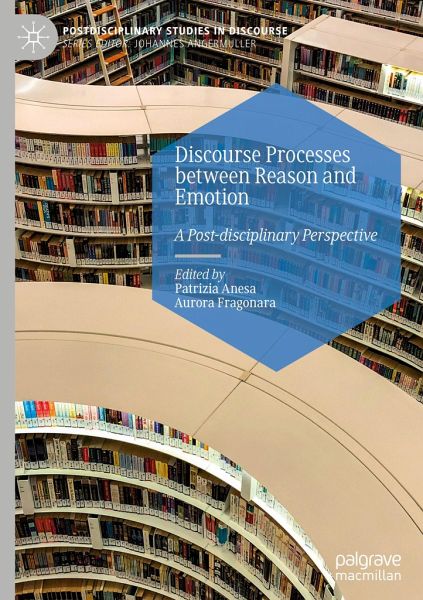
Discourse Processes between Reason and Emotion
A Post-disciplinary Perspective
Herausgegeben: Anesa, Patrizia; Fragonara, Aurora

PAYBACK Punkte
0 °P sammeln!
This book addresses different forms of discourse by analysing the emergence of power dynamics in communication and their importance in shaping the production and reception of messages. The chapters focus on specific cognitive aspects, such as the verbal expression of reasoning or emotions, as well as on linguistic and discursive processes. The interaction between reasoning, feelings, and emotions is described in relation to several fields of discourse where power dynamics may emerge and includes, among others, political, media, and academic discourse. This volume aims to include representative...
This book addresses different forms of discourse by analysing the emergence of power dynamics in communication and their importance in shaping the production and reception of messages. The chapters focus on specific cognitive aspects, such as the verbal expression of reasoning or emotions, as well as on linguistic and discursive processes. The interaction between reasoning, feelings, and emotions is described in relation to several fields of discourse where power dynamics may emerge and includes, among others, political, media, and academic discourse. This volume aims to include representative instances of this heterogeneity and is deeply rooted, both theoretically and methodologically, in the acknowledgment that the investigation of the complex interaction between reason and emotion in discursive productions cannot be exempt from the adoption of a multi-disciplinary perspective. By providing a critical reflection of their methodological decisions, and describing the implications oftheir research projects, the contributors offer insights which are relevant for students, researchers, and practitioners operating in the broad field of discourse studies.




